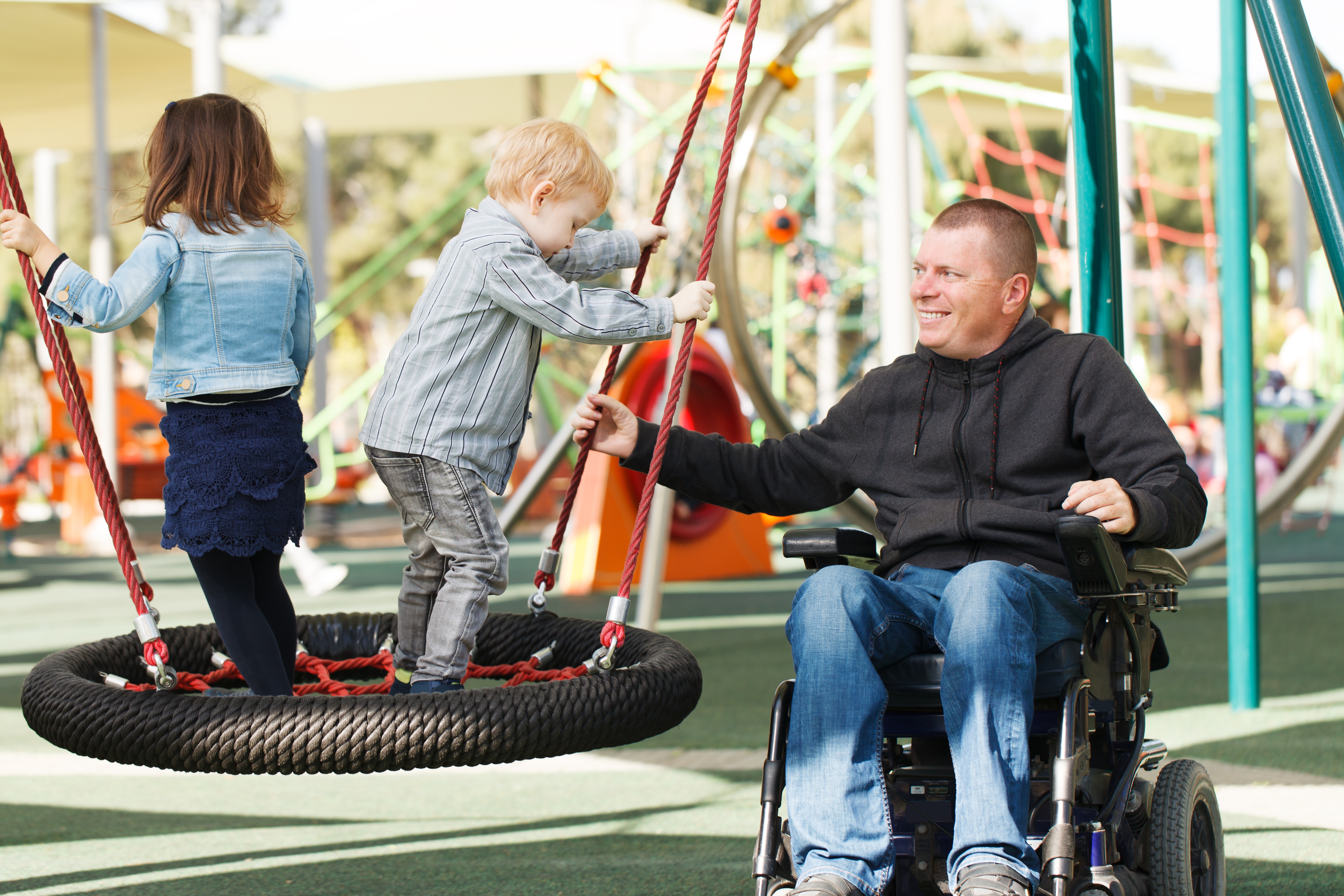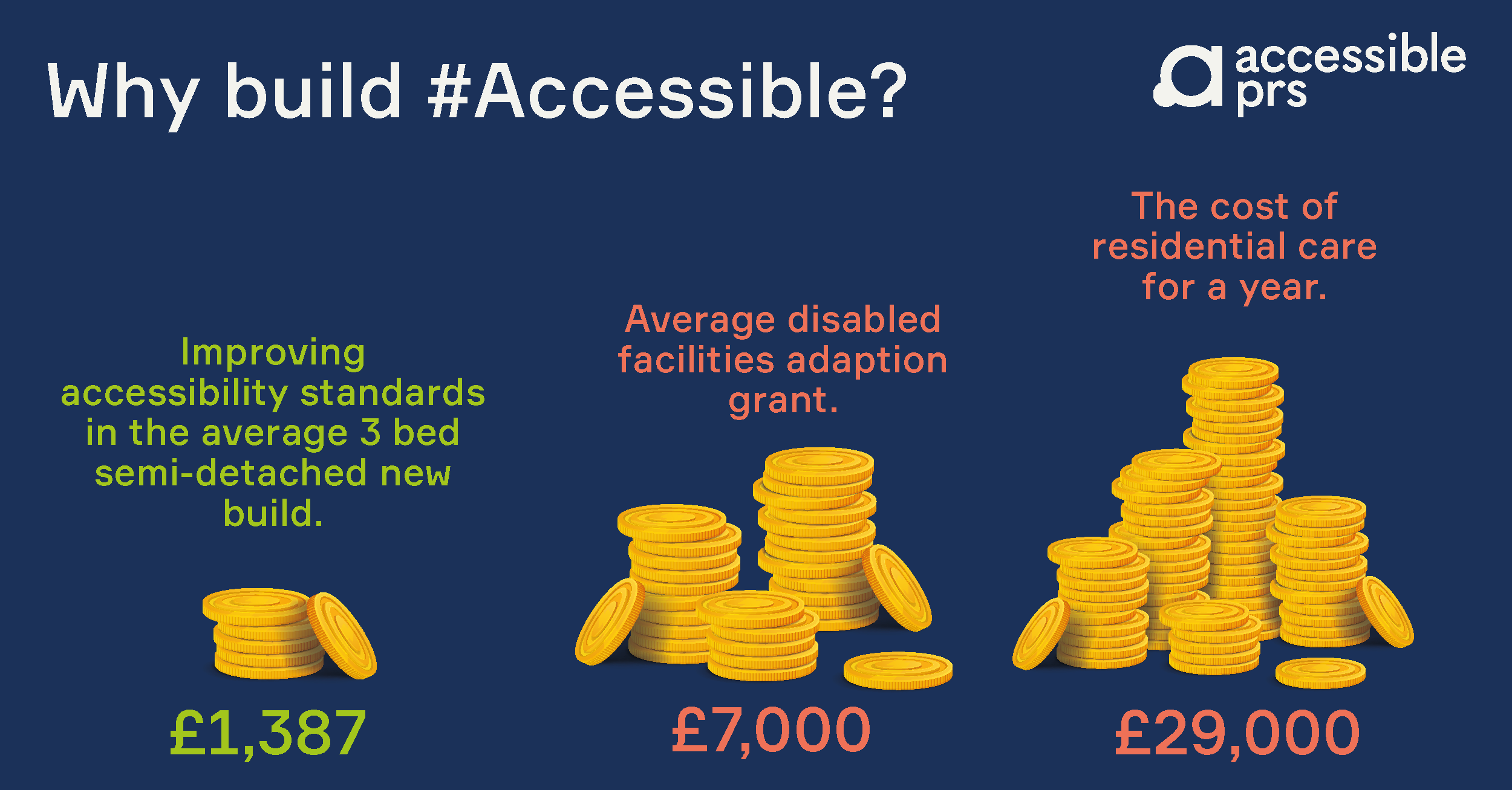Future-Proofing Homes & Your Property Investments.
- All
- tenants
- landlords-and-investors
- designers-and-developers
- All Articles
- Letting Agents
- Landlords & Investors
- Designers & Developers
Back to Resources
Future-Proofing Homes & Your Property Investments.
Mon Nov 30, 2020
It makes financial and social sense to ensure that new properties are fully accessible and inclusive. This is easy to do but requires a commitment to do it right.

AccessiblePRS is increasing the supply of wheelchair accessible homes. We focus on the private rented sector (PRS) because it’s an area of chronic need that we know well. We also offer consultancy services to developers, architects, cohousing groups and self-builders. We add value by understanding how people will experience your designs. We do this, because it makes sense and because everyone wins when inclusivity is well conceived and implemented.
- Social sense - On a cheery note, good design positively impacts on everyday life for families, on relationships, on mental health. When you design for wheelchair users, you design for children and all that baby kit, (buggies, car seats, toys, bikes) homeworkers, older people, bicyclists, and for change, flexibility and sharing. Well designed homes spark joy and offer possibility and opportunity. Poorly design creates a gnawing underlying stress - it is through lack of insight that we vilify the behaviours of people in poor housing. Think of someone you know who is a wheelchair user, or who has had a traumatic accident (82% of disabilities happen during our working lives) or who is living with a degenerative condition (such as MS, MND, Parkinsons, etc.) or an older person who is living with dementia or a stroke. Accessible homes give people choice and control, which can be the difference that enables the ability to work, enjoy relationships, and participate in family and community life. We’re talking about self-worth, dignity and opportunity.

-
Social sense - On a cheery note, good design positively impacts on everyday life for families, on relationships, on mental health. When you design for wheelchair users, you design for children and all that baby kit, (buggies, car seats, toys, bikes) homeworkers, older people, bicyclists, and for change, flexibility and sharing. Well designed homes spark joy and offer possibility and opportunity. Poorly design creates a gnawing underlying stress - it is through lack of insight that we vilify the behaviours of people in poor housing. Think of someone you know who is a wheelchair user, or who has had a traumatic accident (82% of disabilities happen during our working lives) or who is living with a degenerative condition (such as MS, MND, Parkinsons, etc.) or an older person who is living with dementia or a stroke. Accessible homes give people choice and control, which can be the difference that enables the ability to work, enjoy relationships, and participate in family and community life. We’re talking about self-worth, dignity and opportunity.
- Avoiding siloed housing solutions. Whatever we want to build can only fully achieve it with inclusive design. Anything else falls short. For example (by no means an exhaustive list):
- Sustainability - needs to consider future occupants instead of rebuilding.
- Community - needs to include diversity to avoid marginalisation and division.
- Affordability - needs to keep people close to their support networks, schooling and work.
- Family - people don’t choose to be either disabled or a parent / child, though searching for hotel accommodation might make you believe this is the case.
- Luxury - current spending power of the purple pound is £249bn per annum, but there have to be places to spend it.
Accessibility is a design mindset which moves laterally through all these vertical silos.
Everyone I speak to understands this on a personal level. AccessiblePRS helps decision makers have the personal courage to take accessibility back to their businesses and organisations and say, we need to embrace this because it’s good for our business, as well as society. Moreover, we are responsible.
This area is a growing trend. Property companies are either going to embrace it as a strategy or get left behind.
This area is a growing trend. Property companies are either going to embrace it as a strategy or get left behind.
If you’re a landlord or investor and this resonates, please get in touch. We’d love to hear where you’re already at and what’s your vision.
If you’re a wheelchair user looking for the flexibility of a private rented home, then contact us to find out more, or register immediately to get started. There is no cost or obligation with your registration, only a connection and a door opening.
